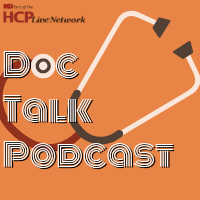Video
Summation of Requirements for Future Improvement
Peter Salgo, MD: Programs like these and those that the judge has mentioned will hopefully become more common so that we can properly address chronic mental illness. It’s a severe problem. We saw how long it took to address the opiate crisis and all of the resources that were required. We’ve had a much longer crisis with mental illness and haven’t gained the necessary resources, through awareness, medical advancements, and transition programs, to move in the right direction.
Judge Steven Leifman: We have a mental health crisis in this country, and the way we’ve been treating people with serious mental illnesses, in many ways, is criminal. We’ve been using a criminal justice system model where, instead, we need a population health model. We need to start treating this as an illness, not a crime. We know, through programs like in Chicago and what we’ve done in Miami, through our jail diversion program, that if we divert people before and after they penetrate the criminal justice system, we will see amazing results. We do not have to settle for the status quo; these illnesses are treatable. People can recover and lead healthier lives. It is inexcusable that we’re using the criminal justice system to treat people with serious mental illnesses.
Peter Salgo, MD: Dr. Jones Tapia?
Nneka Jones Tapia, PsyD: We’re talking about human lives here. We’re talking not just about that person who is incarcerated unjustly, but their families as well. There are hidden victims to this mass incarceration—especially those who are mentally ill. We need to take a more thoughtful look at those costs to society, considering the detriments to the families in addition to the individual. We need to break the silos. We’ve been talking about that throughout this discussion, but until then we need to get to the point where the correctional institution is seen as a part of the community. We’ll continue to contend with this issue.
Peter Salgo, MD: Dr. Tohen?
Mauricio Tohen, MD, DPH, MBA: The issue of mental illness affects all of us: the individual, the patient, and the family. The only way to solve it is collaborative work between correctional facilities, community centers, law enforcement, politicians, lawyers, and judges. We sometimes forget about the stigma. The mentally ill not only suffer from their condition but from the stigma of society. Only if we work together with the courts, prison system, and medical services will we see these individuals receive any sort of proper care.
Peter Salgo, MD: What a tremendous discussion—an area, I must confess, that I hadn’t thought about all that much. And I don’t think I’m unusual; I think a lot of clinicians haven’t, as well.
Nneka Jones Tapia, PsyD: Yes.
Peter Salgo, MD: I want to thank all of you for your contributions to this discussion. On behalf of our panel, I want to thank you for joining us. I hope you found this MD Magazine® Peer Exchange discussion to be useful and informative. I’m Dr. Peter Salgo, and I’ll see you next time.
Transcript edited for clarity.





